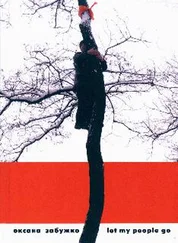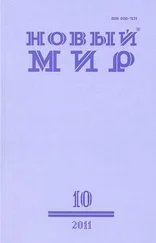Оксана Забужко - Fieldwork in Ukrainian Sex
Здесь есть возможность читать онлайн «Оксана Забужко - Fieldwork in Ukrainian Sex» весь текст электронной книги совершенно бесплатно (целиком полную версию без сокращений). В некоторых случаях можно слушать аудио, скачать через торрент в формате fb2 и присутствует краткое содержание. Город: Las Vegas, Год выпуска: 2011, ISBN: 2011, Издательство: AmazonCrossing, Жанр: Современная проза, на английском языке. Описание произведения, (предисловие) а так же отзывы посетителей доступны на портале библиотеки ЛибКат.
- Название:Fieldwork in Ukrainian Sex
- Автор:
- Издательство:AmazonCrossing
- Жанр:
- Год:2011
- Город:Las Vegas
- ISBN:978-1-61109-008-6
- Рейтинг книги:5 / 5. Голосов: 1
-
Избранное:Добавить в избранное
- Отзывы:
-
Ваша оценка:
- 100
- 1
- 2
- 3
- 4
- 5
Fieldwork in Ukrainian Sex: краткое содержание, описание и аннотация
Предлагаем к чтению аннотацию, описание, краткое содержание или предисловие (зависит от того, что написал сам автор книги «Fieldwork in Ukrainian Sex»). Если вы не нашли необходимую информацию о книге — напишите в комментариях, мы постараемся отыскать её.
Fieldwork in Ukrainian Sex — читать онлайн бесплатно полную книгу (весь текст) целиком
Ниже представлен текст книги, разбитый по страницам. Система сохранения места последней прочитанной страницы, позволяет с удобством читать онлайн бесплатно книгу «Fieldwork in Ukrainian Sex», без необходимости каждый раз заново искать на чём Вы остановились. Поставьте закладку, и сможете в любой момент перейти на страницу, на которой закончили чтение.
Интервал:
Закладка:
Ladies and gentlemen, I can see the bored expressions that have settled onto your faces; in your minds you’ve already established the diagnosis: “severe psychological problems” on both sides—a nationalist-masochist (although this particular disease you’re probably unfamiliar with…) and an autistic maniac (this one is simpler because in addition to purely communication issues, that inability to connect or whatever you call it, one might mention a few milder though clinically more significant symptoms—for example, the impossibility of keeping a phone number in his head long enough to write it down, and the especially characteristic, strangely awkward calligraphy—unexpectedly skipped letters, or a sudden capital in the middle of a sentence, or those illiterate “J” or “Э” that somehow wandered in from foreign alphabets, supposedly in order to make the written line more balanced graphically—bad things, troubling, and then if you were to recall those suspicious migraines of his that he boasted of fainting from occasionally, the case begins to look very serious)—no denying it, that nice, handy word problems ; it can mean a math question, and breast cancer, and loss of love, and in every case there is always someone who can help: a professor, a doctor, a psychoanalyst—assuming, of course, that you have something to pay them with, and if you don’t, then you’ll just have to try and get it, go digging through all your socks and mattresses, nothing to be done—life is expensive: like Rosie, for example, Mark’s wife, going to see a psychoanalyst for seven years straight, two sessions a week, which poor Mark (an oversized schoolboy), not yet even a full professor, is obviously unable to pay for, therefore every once in a while Rosie, the forty-year-old girl, the mother of a grown child but tiny and thin as a sparrow (tight-assed sparrow with thick werewolf browns meeting on the bridge of her nose), invariably ill either from a chill or too much sun or at the very least from exhaustion (hand on forehead like a collective farm worker, a crumpled wad of Kleenex by her nose), must go looking for a job, and she finds something for a month, or two, or even three—and all so that she could go lie down on that couch twice a week and tell someone who’s willing to listen to her how unhappy she is—after six years of this she and Mark stopped having sex and this is obviously progress: now they’re both gritting their teeth on account of this abstinence, fights break out with a hungry crackle, like a fire on well-dried twigs, at each verbal interaction, and it seems that the number of therapy sessions will have to increase: “problems” are “problems” and society ordains that we solve them with four arithmetic operations: there’s A, there’s B, you can add them, multiply them, divide, or transpose them, and all that in the hope of getting a third quantity, a full-time occupation!—somewhere in the back of the workbook lie the answers in fine print, let’s be patient, someday they may show them to us. Someday each of us will read his or her answer—except that by that time it will be too late to change it.
Ladies and gentlemen, problems—are things to be solved according to a set of rules. But it’s precisely those rules that we don’t know, we know only the four arithmetic operations, and we push ahead with them, pretentious ignoramuses, up to precipices and subterraneous caverns of unknown and imagined quantities, and the ground slips out from under our feet, and an echo resounds as through the canyon, and in that rumble you can catch a peal of—laughter (guess whose, come on now?), and a scorching horror takes possession as you suspend your foot over the void from which rise invisible fumes from a slow burn of that devastating sorrow that the Russians define as deathly , which sucks everything out of you till your bones ache: and so here we have—the doors to hell, ladies and gentlemen, welcome, they’re always open, why are you dallying, isn’t this the place you’ve been in such a rush to get to?…
“ I’ve always wanted only one thing—to reach my full potential .” That’s what he would repeat, and he spoke the honest truth. “ Smell it, come over and smell this—aah, what a smell! ”—he would lean over a set of newly acquired paints, lustfully flaring his nostrils, ecstatically shutting his eyes (these American stores are sheer heaven, they’ve got everything, the bastards, look, look!—he surreptitiously stroked a silky sheet of Chinese drawing paper with his fingertip, what does it cost? are they nuts!?—and see this sponge over here, feel it, it’s alive!—and they sell canvases already stretched, this is bloody unbelievable, and what are these? whitewashes? how much? they can fuck themselves, assholes—come on, let’s get out of here—then an abrupt halt, twisting his head back, breathing in the air with the pain of unquenchable passion: can you smell it?)—she enjoyed this animal sensuality even if not directed at her, even if all she got were the crumbs: her love of words was equally sensual—first the sound, but the sound pulled in with it, in its tightly woven trammel, a catch of texture, consistency, smell, and obviously color, too: color imbued not only individual words, it was especially pronounced when switching from one language to another—each, of course, radiated its own, brilliantly shimmering basic tone : Italian—electric violet, ultramarine, the kind of light effect you’d get if you could turn red wine blue; Polish shushed and grated fresh young bitter-tart garden greens; English slowly bubbled something translucent akin to a gentle golden chicken bouillon broth, incidentally a lot more watery in the States, the British variant more intense, thick-and-gooey, richer; obviously her mother tongue was the most nutritious, most healing to the senses: velvety marigold, or no, cherry (juice on lips)? strawberry blond (smell of hair)?… it’s always like that, the minute you peer more closely the whole thing disintegrates into tiny pieces and there’s no putting it back together; she hungered for her language terribly, physically, like a thirsty man for water, just to hear it—living and full-bodied with that ringing intonation like a babbling brook at a distance, just a lap—honestly, she’d feel better!—at that moment he remembered, unsmiling, how once, in about fifth grade, he was sitting in a Ukrainian-language class and secretly sniffing some paints hidden in his desk, and the teacher ran over and flung them clattering in all directions down the aisle—well sure, only a Ukrainian-language teacher would pull such a stunt, for some reason they seem everywhere to be the dumbest, most vicious hags (as if specially selected), rabidly faithful lackeys, abundantly loyal sergeants in the Soviet army— you don’t suppose there’s a national inferiority complex rampant there? … So they chatted—when they were still talking to each other, because he opened up to share something inside him only very gradually, creakily: he wasn’t used to it, whatever little internal doors he had in there must have been wedged shut a ve-e-ry long time ago, and the hinges rusted out—God, what kind of a marriage did this guy have, I wonder, huh?… For outsiders, and that means everybody except one or two close friends (they had hundreds of common friends, but she realized fairly quickly that not a single one of that crowd, even the fairly smart guys he’d been friends with for umpteen years, really knew him all that well; he knew them— saw them!—in a much deeper, more penetrating, and at the same time somewhat more ruthless way, when they discussed common friends—which is, after all, utterly essential for every couple, because that’s how the newly constructed world of both is populated, settled, in their case given to them pretty much ready-made, on the Biblical “seventh day”—she was struck unpleasantly by how coldly he dispensed judgments in all directions: X “sees things superficially,” Y is an “extinct volcano,” Z “married that huge babe ’cause he needs a mama”—like driving ash stakes through their hearts: nailing them down, hammering from the shoulder, without a hint of empathy, never actually touching upon their lives with his own feelings, and when ultimately he turned that side of him against her, calmly cutting off one of her “how am I supposed go on living?” questions with a harsh: “ I see in you an ability to survive under any circumstances ”—she immediately rose up to demonstrate this ability: absorbing not the painfully distant tone but rather the naked essence of what was said: the guy’s tough, and smart, and he’s been around, if that’s what he says then maybe it’s true, I’ll survive?)—so then, for outsiders he smeared himself with a thick coat of an impenetrable, though, one must admit, very masterful sort of chitchat, all kinds of gags and games generously flavored with spicy irony, but she was not one to be fooled by that, she also had her (hah!) elaborate and ever-so-tightly fitted (not to say sexy) linguistic mask, and when he tried to hide behind his—hey, there, if you’re gonna play, no cheating!—she preferred to slice that papier-mâché apart with a knife: and that’s when the hysterics began, night after night, the blade grew notched and dented, practically ended up in a hospital, but she did the guy in, too—God help her: if this is the way it’s gonna be, then fine, I’m not the only one going down! Fuck, how disgusting… “ You know what your precious ‘hermeticism’ is? ”—because he had named it thus, giving this business a theoretical foundation, fucking deep thinker, a conceptualist!— “Well what? Go ahead, but keep it short, in two words or less. ”— “No problem, I can do it in two: a stone egg. ”— “Nice, ” he pulled in his shoulders for a moment, she got him— “but… well painted, right? ”
Читать дальшеИнтервал:
Закладка:
Похожие книги на «Fieldwork in Ukrainian Sex»
Представляем Вашему вниманию похожие книги на «Fieldwork in Ukrainian Sex» списком для выбора. Мы отобрали схожую по названию и смыслу литературу в надежде предоставить читателям больше вариантов отыскать новые, интересные, ещё непрочитанные произведения.
Обсуждение, отзывы о книге «Fieldwork in Ukrainian Sex» и просто собственные мнения читателей. Оставьте ваши комментарии, напишите, что Вы думаете о произведении, его смысле или главных героях. Укажите что конкретно понравилось, а что нет, и почему Вы так считаете.




![Оксана Забужко - Тут могла б бути ваша реклама [збірник]](/books/29264/oksana-zabuzhko-tut-mogla-b-buti-vasha-reklama-zbІr-thumb.webp)

![Оксана Забужко - З мапи книг і людей [Збірка есеїстики]](/books/203319/oksana-zabuzhko-z-mapi-knig-І-lyudej-zbІrka-eseЇsti-thumb.webp)


